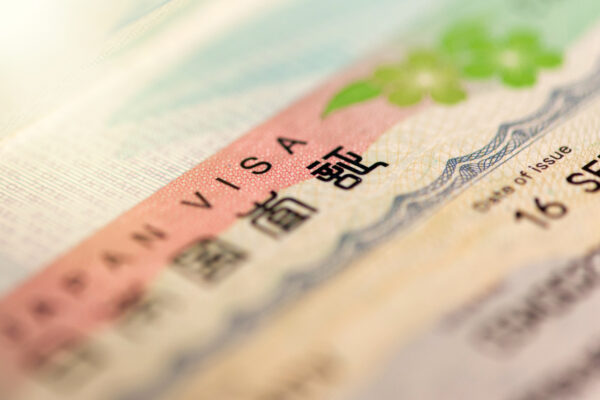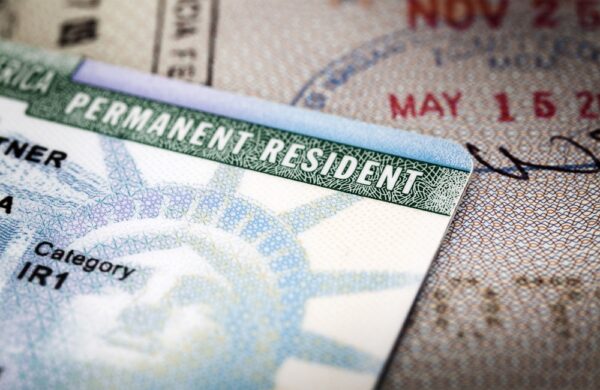Japan is a beautiful East Asian nation located in the northwest Pacific Ocean. The country has a strong economy deeply rooted in engineering and technology. Many top car and electronics brands originated in Japan. Also, the rapid development and rich history and culture make Japan even more appealing for immigrants. As a result, millions of foreign nationals apply for Japan immigration every year. It is essential to understand the country’s immigration processes for those hoping to explore these abundant opportunities. We’re happy to teach you all you need to know.
Benefits of Japan Immigration
Becoming a resident of Japan comes with many great advantages. The county is constantly ranked high in many life fields and is considered the second-largest developed economy in the world. Some tangible benefits of securing Japanese immigration are described as follows:
1. Security and Safety
Japan is one of the safest countries in the world (currently ranked number 10). The crime rate is usually low, and the environment is calm in most areas. As a result, Japan is a safe place for immigrants to live, study, work, or visit on a tour.
2. Great Healthcare
Japanese hospitals are top-notch, and the country has one of the best healthcare systems in the world. You can get medical treatment in both public and private hospitals and clinics. Furthermore, the country offers healthcare discounts to all its citizens, covering 70% of medical costs, so citizens will cover only 30%. You best believe this is reason enough to push for Japanese citizenship.
3. Stellar Education System
In terms of academics, Japan soars in the top 5%. The country’s education system is so attractive that international students favor their schools over top Western countries. In Japan, academic institutions emphasize critical thinking and teaching students how to leverage technology to solve problems.
4. Rewarding Job Opportunities
Japan’s robust economy has a strong base in various industries and as a result, immigrants get access to an extensive job market. Also, Japanese companies offer high salaries, excellent facilities, and great work environments. Thanks to government policies, many employers also offer many benefits for workers, such as health insurance, paid leave, and a lot more.
5. Great Quality of Life
Japan ranks high when it comes to quality of life. The country offers its citizens and legal residents a safe and orderly life. Japan is generally very clean and neat, has excellent air quality, and has a reputation as one of the cleanest countries in the world. Also, Japanese nationals keep their environment clean and neat, as cleanliness has been a big part of Japanese culture. It is vital to adopt this practice when you move there. Also, there are many beautiful islands and beaches to enjoy nature in Japan.
6. Reliable and Affordable Public Transportation
Japan is famous for its fast train network and efficient transportation system that will quickly get you around the country. The best part is that everyone can afford to use these facilities. It is even free for some.

Immigrating to Japan
Not every foreigner traveling to Japan needs a visa. Whether you need a visa depends on your purpose of travel and country of origin. For instance, if you travel to Japan as a tourist or for quick business purposes, you will probably not need a visa. However, you can only stay for up to three months, and it depends on your country of origin. Citizens of some countries must apply for a visa before coming to Japan, even for a month.
Moreover, foreign nationals seeking to settle in Japan must apply for a long-term stay visa. You can apply at your home country's Japanese diplomatic missions (embassy/consulate). Once you enter the country with a visa, you will receive a Landing Permit at the port of entry, which will replace your visa and allow you to stay legally in Japan. These permits are usually temporary, ranging between one and three years. Some applications attract permanent residence status directly.
Additionally, you must obtain a Certificate of Eligibility before applying for any long-term stay visa programs. Also, the type of visa to apply for depends on the purpose of entry and your country of origin.
How to Secure Japanese Residency
Foreign nationals who want to become residents in Japan must apply for a long-term stay visa. Japan immigration authorities offer many long-term stay visa programs, each with unique perks and application procedures. These visas are divided into categories based on the purpose of travel. The primary categories are described below:
1. Japan Immigration for Work
For those looking to take advantage of Japan’s vast economy, you must get a work visa first. This visa allows you to work in a capacity associated with your visa type. Japan's immigration authorities offer three types of work visas, depending on essential factors. There are The regular Japan Work Visa, Japan Highly Skilled Professional Visa, and Japan Working Holiday Visa.
If you want to stay for a more extended period in Japan, you must apply for the proper work visa. Before applying for a Work Visa, your employer must obtain a Certificate of Eligibility from the Immigration Services in Japan. Once you get your Certificate of Eligibility, you can continue to apply for a work visa at the Japanese diplomatic missions (embassy/consulate) in your home country. You can enter the country after receiving your work visa, and you can also bring your family members with you to Japan.
2. Japan Immigration for Education
If you are offered admission to a Japanese educational institution, you must obtain a student visa to prolong your stay in the country. You can request a student visa at the closest Japanese Embassy or Consulate in your home nation. However, your school must send you the Certificate of Eligibility so that you can proceed with your student visa application.
A student visa permits residency for a maximum of two years. You can apply to extend your stay three months prior to the expiration date of your visa. With a student visa, you are limited to working no more than 18 hours per week.
3. Japan Immigration for Family Reunification
If you have a family member who is a Japanese citizen living in Japan, you can join them by applying for a Japan family visa. To be eligible for a family visa, you must be married to a spouse or dependent child of a Japanese citizen or permanent resident.
In this case, your Japanese relative is responsible for submitting your application for a Certificate of Eligibility. With this, you can begin applying for a family reunification visa.
All visa applications must be submitted to the Japanese diplomatic missions (embassy/consulate) in your home country. When granted, this type of visa gives a residency permit for up to three years and can be extended. Spouse visas have a major advantage. With a family visa, you can work as a spouse to a Japanese citizen or a permanent resident of Japan. Dependent children do not work and must be less than 21 years of age.
Special visa programs are also available for unconventional cases. However, it is usually difficult or impossible to renew/extend these visas, and hence, it is not ideal for those looking to stay in Japan for a long time. They are as follows:
1. Start-up Visa
Entrepreneurs supported by municipalities in Japan and their spouses or children can apply for a start-up visa. The period of stay is six months.
2. Diplomatic Visa
This type of visa is for members of diplomatic missions. Diplomatic visas are valid for a period of stay that corresponds to the length of their mission.
3. Official Visa
Individuals who come on the official business of foreign governments or international organizations recognized by the government of Japan and their family members receive an official visa. The period of stay ranges from 15 days to five years.
How to Apply For Japan Long-term Stay Visa
The Japanese embassy or consulate in your country is where you pick and submit your application. You can also visit the official Ministry of Foreign Affairs website to get a visa application form. Furthermore, Every long-term visa requires a connection to Japan. Your connection can be your employer, the school you plan to study, or a Japanese acquaintance who agrees to become your guarantor. You must reach out to your connection for a Certificate of Eligibility (COE), which the Immigration Bureau of Japan issues.
Your Japanese connection will need to apply for your Certificate of Eligibility (COE) at their Regional Immigration Bureau. After your COE is issued, your Japanese acquaintance will need to send you the certificate. Then, you must prepare the remaining required documents before submitting your application.
After you submit it, your application will undergo review. You will be given advice and guidance on collecting your passport from the Japanese embassy. Typically, it takes about five business days to process a visa application. If approved, you will be issued a visa for entry into Japan. This visa is valid for three months, so you must complete the necessary procedures at the Immigration Bureau to secure your residential status within 90 days of arrival in the country.
Documents Required for Japan Immigration
To apply for any type of long-term stay visa, you'll need to submit the following documents to the Japanese embassy in your country.
1. Visa Application Form (two forms are required for some countries)
2. Valid Travel Passport.
3. Two passport photographs (guidelines apply).
4. Certificate of Eligibility (the original and one copy).
5. Documents detailing your position in the company or organization, the salary you will receive, and the duration of your contract (if applicable).
6. Documents regarding the company or organization that offered you a job (company registration, statement of profit and loss, etc).
7. Documents attesting your previous academic and professional history (if applicable).
8. Documents regarding the school or institution you have been admitted into (if applicable).
9. Valid Marriage certificate (if applicable).
10. Original Birth certificate (if applicable).
Japanese Long-term Stay Visa Renewal or Upgrade
Generally, long-term stay visas can last for up to three years. After which they must be renewed to continue staying in the country. You must apply for an extension at an immigration office near you at least three months before your current visa expires.
Also, after residing in the country for at least 5 consecutive years, you can apply for Japan permanent residency, which lets you stay indefinitely without having to extend your visa. It comes with extra benefits and freedom. You may also apply for Japanese citizenship.
However, Japan does not allow its citizens to hold dual citizenship. Therefore you cannot hold citizenship of another country and become a citizen of Japan at the same time. In such cases, you need to choose which citizenship you want to renounce and which one you want to hold.
Let’s Wrap it Up…
Not every foreigner traveling to Japan needs a visa. Whether you need a visa depends on your purpose of travel and country of origin. However, if you want to stay in the country for more than three months, you must obtain a long-term stay visa. These visas require getting a Certificate of Eligibility via your Japan connection and additional documents to prove your eligibility. Lastly, the type of visa to apply for depends on your purpose of travel and country of origin.
















